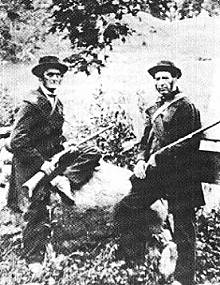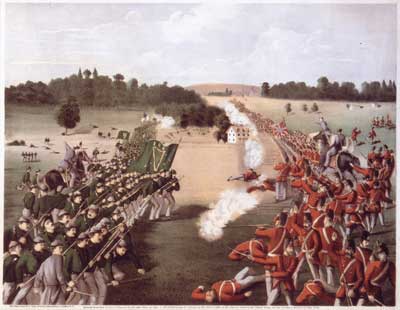| Irish Forums Message Discussion :: Fenians and Huns no more |
   | Irish Forums :: The Irish Message
Forums About Ireland and the Irish Community, For the Irish home and Abroad. Forums include- Irish Music, Irish History, The Irish Diaspora, Irish Culture, Irish Sports, Astrology, Mystic, Irish Ancestry, Genealogy, Irish Travel, Irish Reunited and Craic
|  
|
|
|
| Irish
Author |
Fenians and Huns no more Sceala Irish Craic Forum Irish Message |
Irish News

|
| Sceala Irish Craic Forum Discussion:
Fenians and Huns no more
|
|
|
Fenian, hun, taig and jaffa are among the terms outlawed for PSNI officers in a guide which outlines to them how to avoid causing offence. The guide is "intended to help avoid the unintentional offence caused by unthinking use of language and to improve relationships between officers, staff and across the whole community".
The Guide to Appropriate Language has various categories of words and suggests acceptable alternatives.
Religion, minority ethnic communities, gay people, women and transsexuals are among the linguistic issues covered.
Chief Constable Sir Hugh Orde says in his foreword that using the right language "sends an important message. It is essential that we take a lead in using language that does not exclude colleagues or members of the community, does not stereotype and always shows a wholehearted commitment to supporting our Equal Opportunities Policy,".
Irish Catholics should not be called fenians, taigs, chucks or spongers, while British Protestants should not be referred to as huns, black bastards, prods or jaffas, the booklet says.
It is intended to help avoid the unintentional offence caused by unthinking use of language and to improve relationships between officers, staff and across the whole community
PSNI Guide to Appropriate Language The booklet outlines one exception to the use of fenian, but it is probably rarely used. "It may be perfectly acceptable to use it in an appropriate historical context, for example, if referring to the Fenian Brotherhood," it says.
Officers are advised that if a witness uses language which is not politically correct, they should use speech marks to attribute this when taking a statement.
When it comes to older members of the population, police should not call them geriatric, old codgers or say someone is "just like an aul' woman". "Old can carry connotations of being worn-out and of little further use. It can also be used as a term of abuse," says the booklet.
Where the slang originates in Irish history
Fenian
Fenian is a term used since the 1850s for Irish nationalists. The Fenians (or Fenian Brotherhood) were a secret fraternal organisation dedicated to fomenting armed revolt against the British state in Ireland in the nineteenth and early twentieth century. John O'Mahony, who was a Celtic scholar, named the organization after the Na Fianna, the legendary band of Irish warriors led by Fionn mac Cumhaill. It can also specifically refer to members of both the Irish Republican Brotherhood and Fenian Brotherhood (see Historical usage below). The term is still used today, especially in the north of Ireland, the Republic of Ireland and Scotland, where its original meaning has continued and expanded to include all supporters of Irish nationalism. Irish Nationalists themselves, while honouring the 19th-century Fenians, commonally use other designations for themselves such as "Nationalist" or "Republican".
Irish emigrants
Waves of emigration ensured that such terms would not be confined to Ireland, but spread to England, the United States, Australia and every country where Irish emigrants gathered.
John Mitchel, the most committed advocate of revolution, had been arrested early in 1848 and transported to Australia on the purposefully created charge of Treason-felony. He was to be joined by other leaders, such as William Smith O'Brien and Thomas Francis Meagher who had both been arrested after Ballingary. John Blake Dillon escaped to France, as did three of the younger members, James Stephens, John O'Mahony and Michael Doheny. The remnants of the Young Irelanders would then make their way from France to the United States, and would later joined by Meagher and Mitchel, both of whom escaped from Australia, with the aid of their colleagues in America. It was these younger members of Young Ireland who were to provide the leadership for the two republican organisations which would be set up at the end of the 1850s, one in Ireland, the other in America.
The Republican movement in Ireland became known as the Irish Republican Brotherhood (IRB), and its American counterpart was named the Fenian Brotherhood. Both bodies were to find their greatest support among the emigrant survivors of the great hunger. Members of both groups and their sympathisers, though not not necessarily belonging to either organisation, would come to be known collectively as ‘Fenian’s by the contemporary media and commentators.

Ireland
The Fenian Brotherhood was initially founded in 1858 as the Irish Republican Brotherhood's American branch by John O'Mahony, James Stephens, and Michael Doheny. In the face of nativist suspicion, it quickly established an independent existence, although it still worked to gain Irish-American support for armed rebellion in Ireland. Initially, O'Mahony ran operations in the USA, sending funds to Stephens and the IRB in Ireland, disagreement over O'Mahony's leadership led to the formation of two Fenian Brotherhoods in 1865. The U.S. chapter of the movement was also sometimes referred to as the IRB. After the failed invasion of Canada, it was replaced by Clan na Gael.
Canada
In Canada, "Fenian" is used to designate a group of Irish radicals, a.k.a. the American branch of the Fenian Brotherhood in the 1860s. They made several attempts to invade some parts of southern Canada which was a British dominion at the time. The ultimate goal of the Fenian raids was to hold Canada hostage and therefore be in a position to ask the United Kingdom to give Ireland its independence. Because of the invasion attempts, support and/or collaboration for the Fenians in Canada became very rare even amongst the Irish Catholics.
A suspected Fenian, Patrick Whelan was hanged in Ottawa for the assassination of Irish-Canadian nationalist, Thomas D'Arcy McGee in 1868.
The Fenian Raids
1841-1871
Canada organized permanent militia units and repelled raids by the American-based Fenian Brotherhood.
In 1855, Canada passed a Militia Act creating cavalry, infantry, and artillery units, made up of volunteer, part-time soldiers. Strained Anglo-American relations during the American Civil War (1861-65) led Britain to send 11,000 troops to protect its North
American colonies.
Following the Civil War, the Fenian Brotherhood, largely composed of Irish-American veterans, sought to achieve Ireland’s independence from Britain by capturing Canada as a hostage. Between 1866 and 1871, they raided Canadian territory from New Brunswick to Manitoba. During the largest raid, in June 1866 along the Niagara frontier, the Fenians defeated a small Canadian force at Ridgeway. The Fenians returned to the United States before Canadian and British reinforcements arrived. Every other Fenian raid ended in failure, and the movement collapsed after 1871.

Fenian Brotherhood, Militia Act
Contemporary usage
the north of Ireland
In the north of Ireland, Fenian is used by some as a term for Roman Catholics or Irish nationalists (often inaccurately seen to be synonymous).
In 1984, the Unionist politician and UVF member George Seawright caused outrage at a meeting of the Belfast Education and Library Board by saying that Catholics who objected to the flying of the Union Flag were "just Fenian scum who have been indoctrinated by the Catholic church". "Fenian scum" was also one of the insults shouted at the parents of Catholic schoolgirls by Loyalist protesters in the Holy Cross dispute.
Scotland
The term Fenian is used similarly in Scotland. During Scottish football matches it is often aimed by some supporters of other clubs, particularly Rangers, at Celtic F.C. supporters. Celtic F.C. has its roots in Glasgow's immigrant Catholic Irish population and the club has thus been traditionally associated with Irish nationalism.
Although it is considered to be an insult against Roman Catholics, many maintain that it does not refer to Roman Catholics in general, but to supporters of Irish nationalism or as a pejorative term for Celtic supporters. Protestant Celtic players such as Jock Stein, Kenny Dalglish, Danny McGrain, Davie Provan and Paul Lambert have not been spared this name from opposing supporters. Recently, Celtic supporters have been reported as ironically deriding current Roman Catholic Rangers player Chris Burke with the phrase "Who's the Fenian in the blue?".
Australia
In Australia Fenian is used as a pejorative term for those members of the Australian Labor Party (ALP) who have Australian Nationalist views similar to those of the Irish Catholic supporters of Irish independence. Michael Atkinson, Attorney General of South Australia, spoke of those members of the ALP who wished to remove the title Queen's Counsel and other references to the crown as 'Fenians and Bolsheviks' in a speech given at the ALP Convention in Adelaide on 15 October 2006. Irish Catholics have been traditional supporters of the ALP and have influenced the party's platform regarding the monarchy.
Racehorse
Fenian is also the name of the horse that won the Belmont Stakes in 1869. His image appears on the trophy awarded to the winner of the Belmont Stakes.
|
|
|
|
|
|
|
|
|
|











